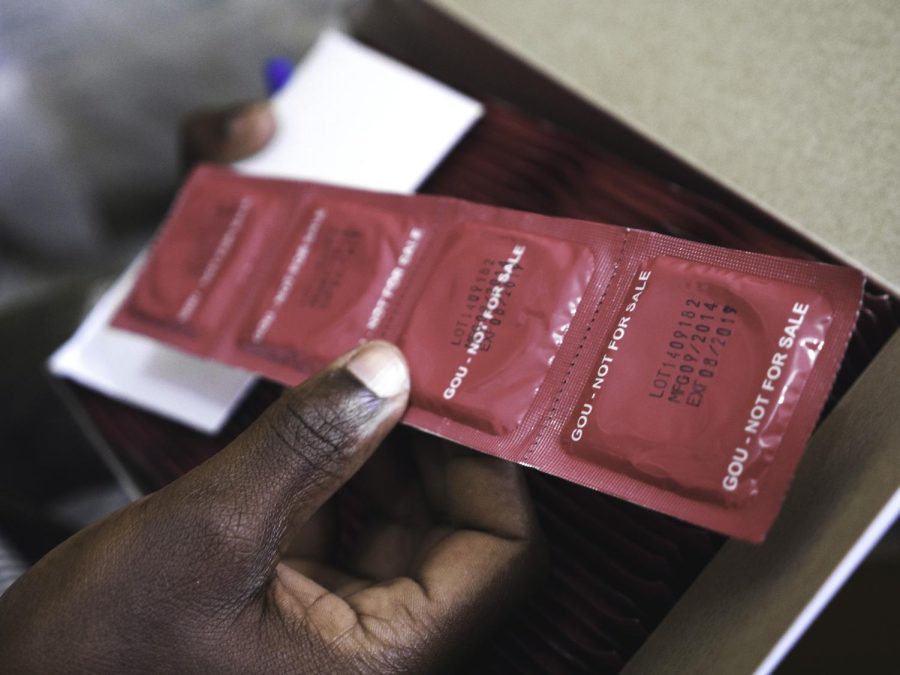Students Use Seattle U Unaffiliated Resources to Distribute Contraceptives
The Instagram account @su.contraceptives appeared during spring quarter 2022, advertising an informative booth providing sexual health information and free condoms to the student body. The account includes informative posts about sexually transmitted diseases, encouragement to use contraception and memes critical of Seattle University’s contraception distribution policy.
Julia Lugos, a third-year environmental studies and design major, explained that as part of a UCOR 1300 assignment, their group was tasked to create a social media campaign about a local issue. Their project was dedicated to sexual health awareness on campus.
“We went hyper-local with this issue, calling out Seattle U for their policies,” Lugos said.
The 2018 Code of Student Conduct explicitly prohibited distribution of contraception. The current policy is not found in the 2022-2023 student code of conduct, but is still being administered through the Office of the Dean of Students. The current code asserts that university resources—funding, technology, supplies and reservable spaces—cannot be used to distribute contraceptives. This is closely tied to the teachings of the Catholic Church which prohibits the use of contraceptives. Distribution of contraceptives is possible as long as those resources are not used.
To comply with university policies, the Instagram account’s bio reads “(not affiliated with seattle university),” and the project was funded by collecting products through Planned Parenthood and Lifelong, a non-profit organization that aims to support people with HIV.
“We didn’t pay for any of this. Lifelong donated them to us and they also offered to help continue supplying them for free to us,” Lugos said.
The contraception distribution policy is currently under review, and a new version is expected to be released later this quarter. Seattle U’s Dean of Students James Willette explained in a written statement to The Spectator that the new policy will continue to prohibit the use of university resources, but students will still be able to distribute contraceptives of their own accord without university resources.
“The goal is to ensure that the policy reflects our institutional Jesuit Catholic identity, while acknowledging that there are many diverse perspectives regarding contraception amongst members of the university community,” Willette wrote.
Seattle U’s Jesuit Catholic background makes for a complex relationship with contraceptive policies. Daniel Dombrowski, a philosophy professor at Seattle U, explained that there is a rift between what the majority of Catholics believe and the official view of the Church as defended by the bishops.
“The overwhelming majority of Catholics would permit, practice and have beliefs regarding contraception that are not much different from beliefs people would have elsewhere in the population,” Dombrowski said.
He explained that the official position of the Church as defended by the bishops includes two different moral criteria—that sex has to happen within marriage (defined between a man and a woman) and open to the possibility of procreation.
“Because there’s this procreative criteria that has to be met in order for sex to be moral, the official position of the Church as defended by the bishops is one that is going to condemn contraception,” Dombrowski said.
The Student Health Center (SHC) is also influenced by the Jesuit Catholic ideals of Seattle U. Tara Hicks, the director of the SHC, explained that cura personalis—a latin phrase for “care for the entire person”—is very important to the care they provide the Seattle U community.
“We care for the whole person and how this health issue that brought them to the SHC impacts and is impacted by every other part of their life. In the 12 years I have been here, I have always felt that Seattle U respects the personal decisions of individuals and their healthcare providers,” Hicks wrote.
The SHC is an exception to Seattle U’s contraception distribution policy, and provides sexual health resources similar to what a primary care clinic would provide, including prescribing contraceptives and STD testing and treatment. In addition, the Office of Wellness and Health Promotion provides sexual health resources.
The future of @su.contraceptives is unclear. The group expressed interest in continuing the work they started. Some of their ideas included searching for people who could carry on the project, using the account or working with Lifelong and The Cave—a small convenience store in the basement of Campion Hall—to make a student-run bowl of condoms available to students. Lugos explained that continuing the group’s account comes with challenges.
“We’ve had a lot of people reach out who want to continue this work but it’s really difficult to do that given the fact we can’t be university sponsored or university affiliated, we can’t really grow at all,” Lugos said.
The tension between the official teachings of the Catholic Church and the lived realities of Seattle U students requires administrative creativity from campus leaders. Whether these compromises will satisfy the Seattle U community and the Church is yet to be seen.


